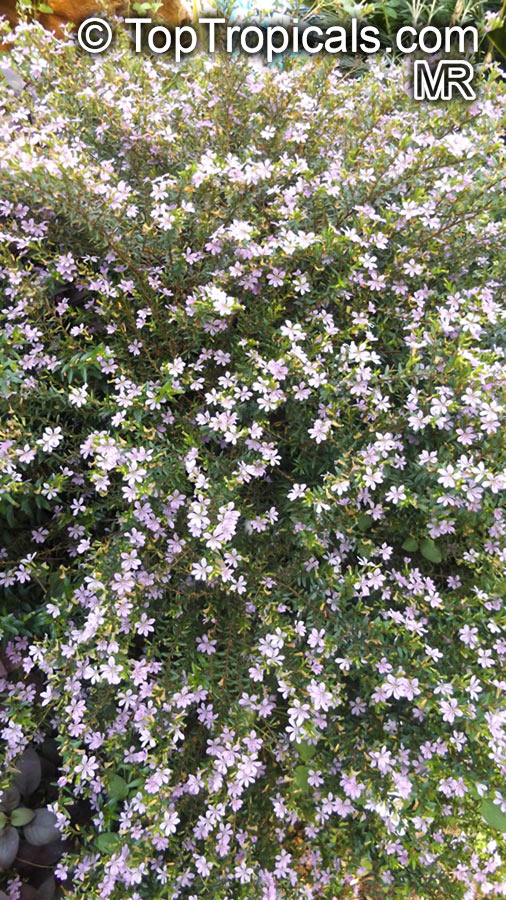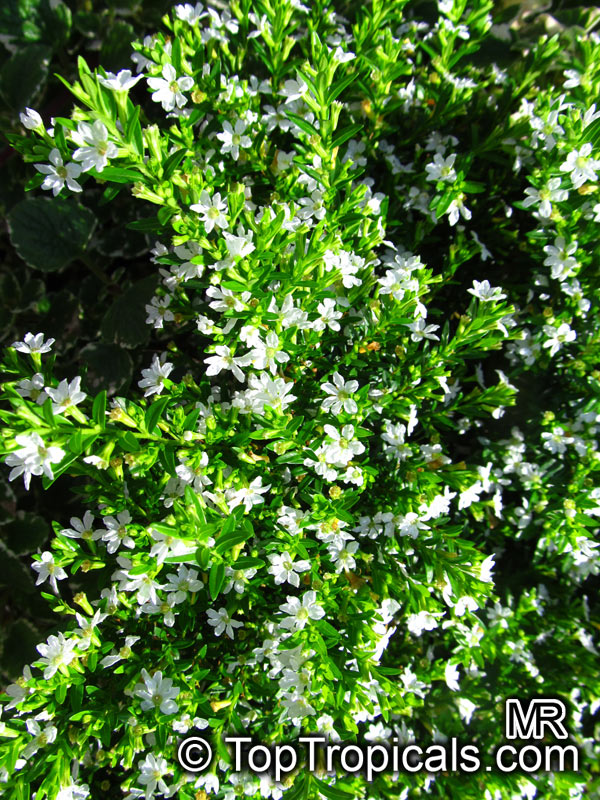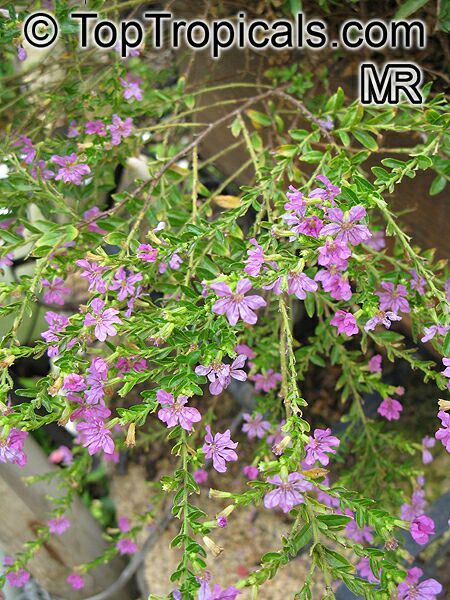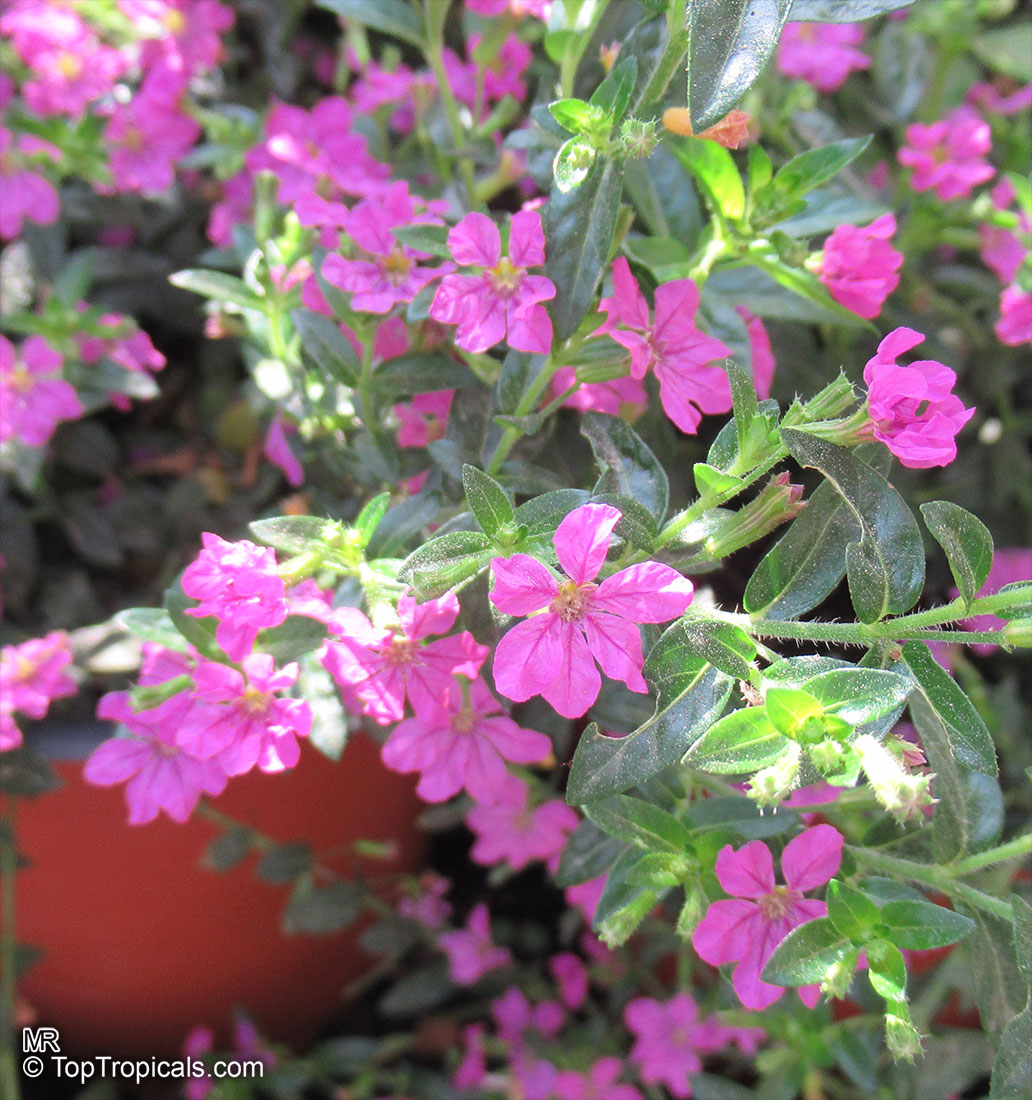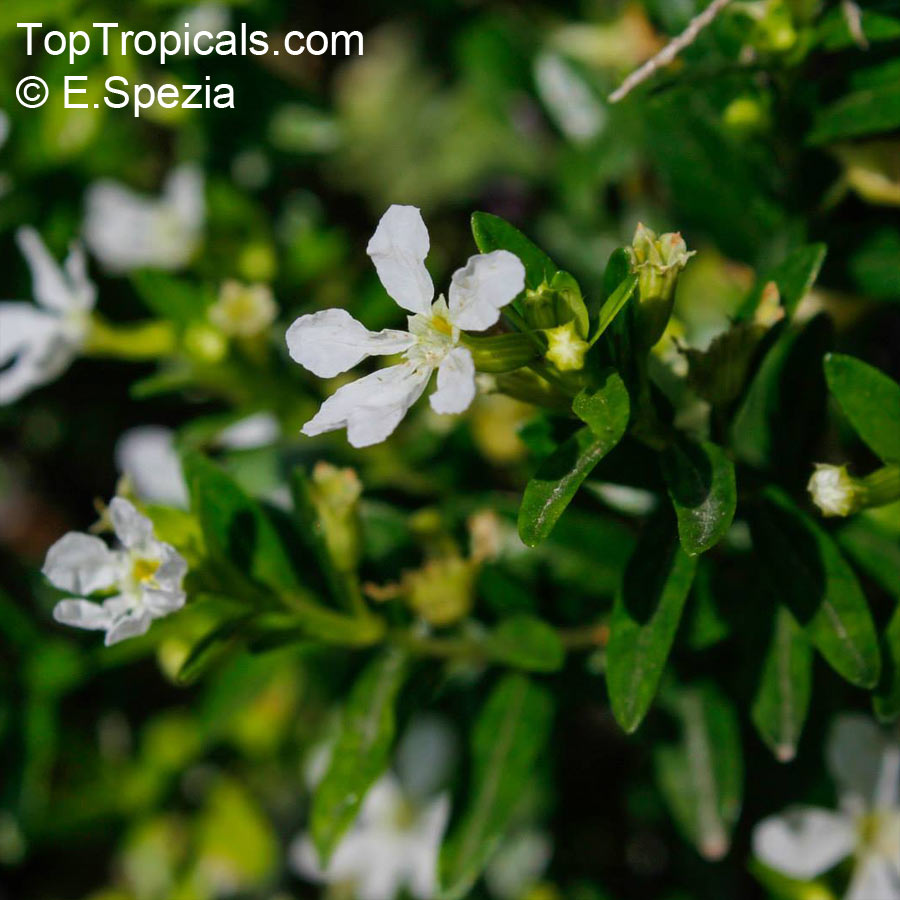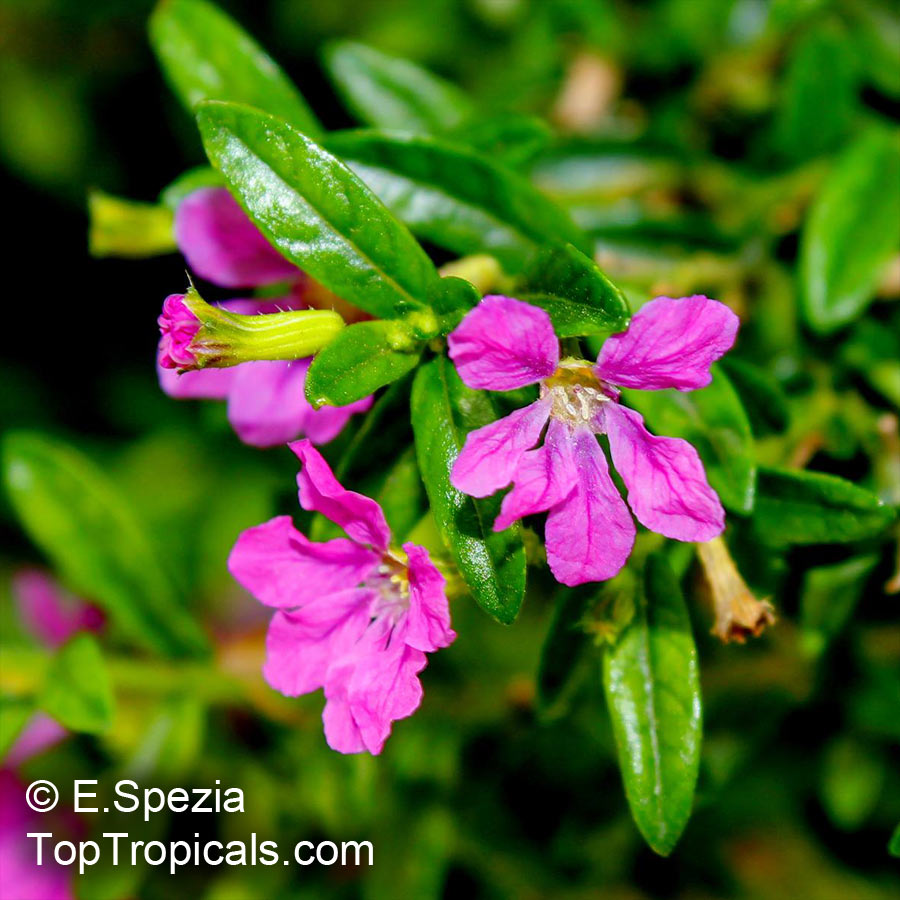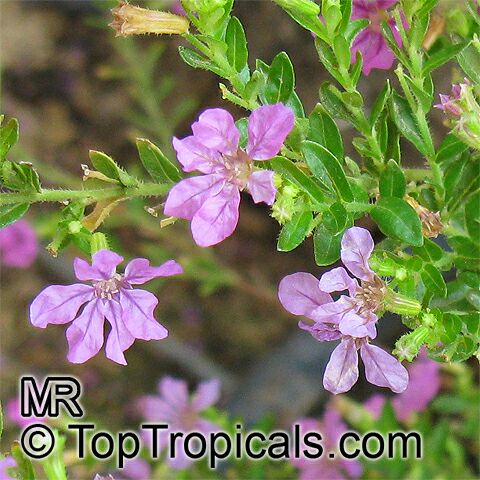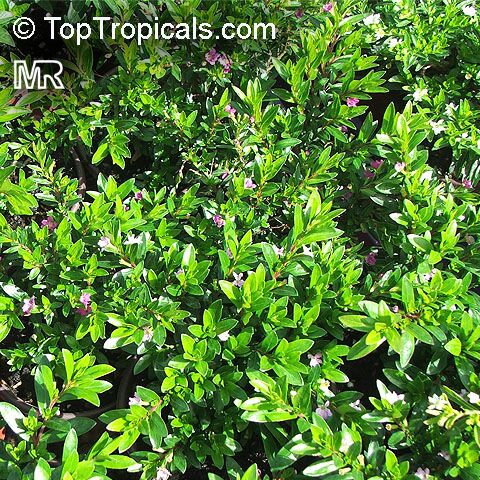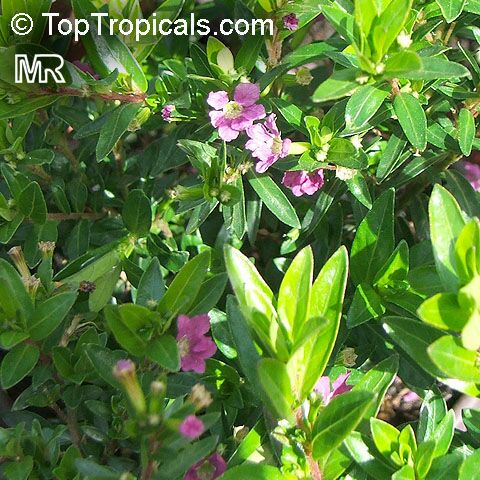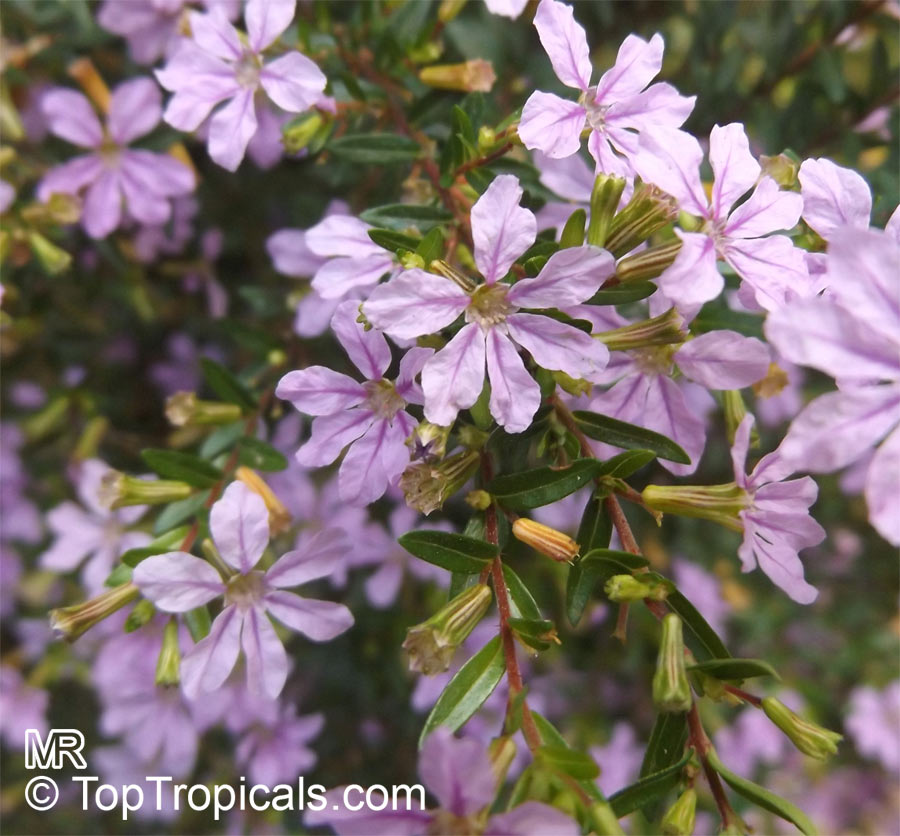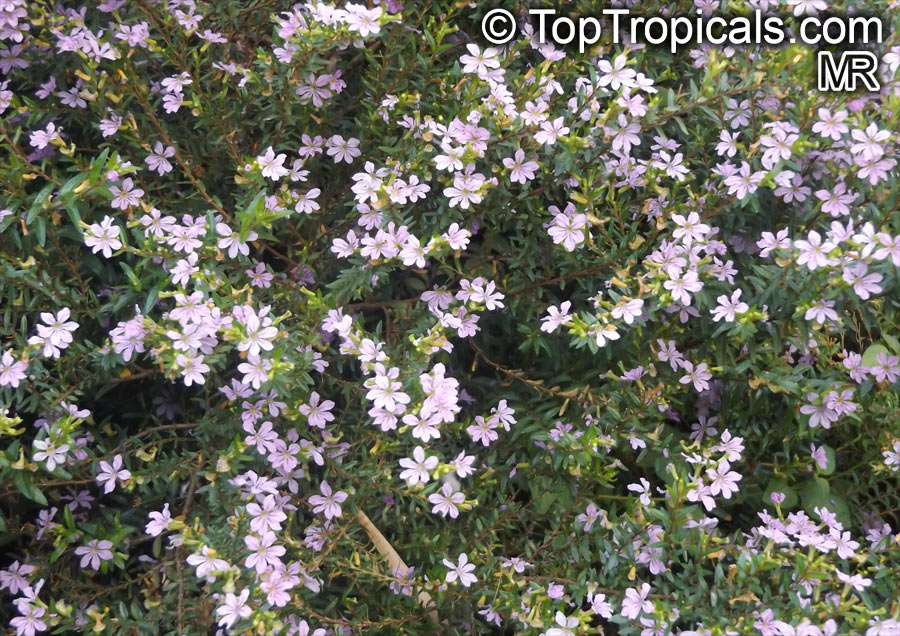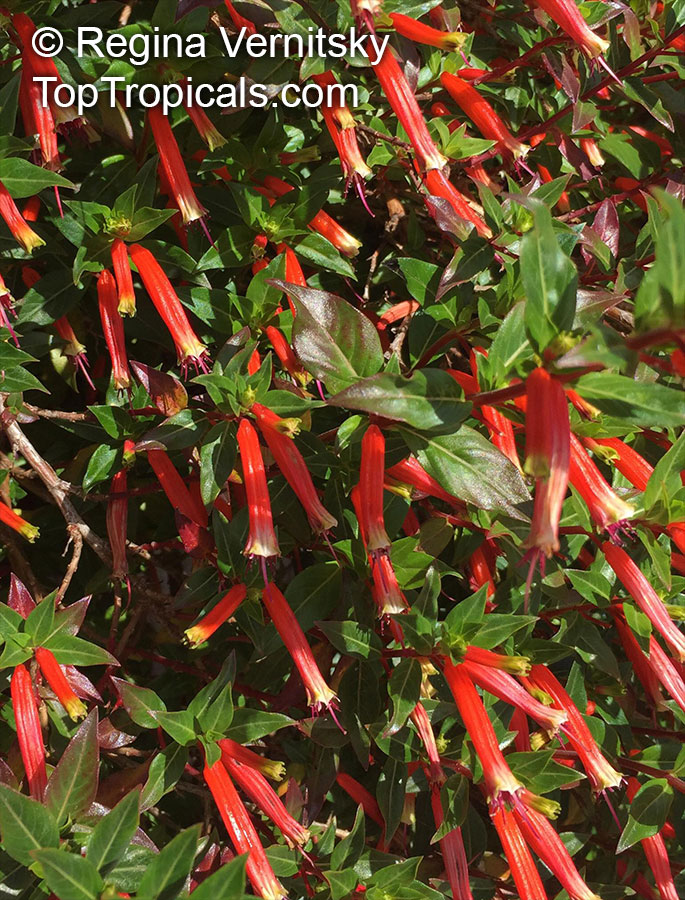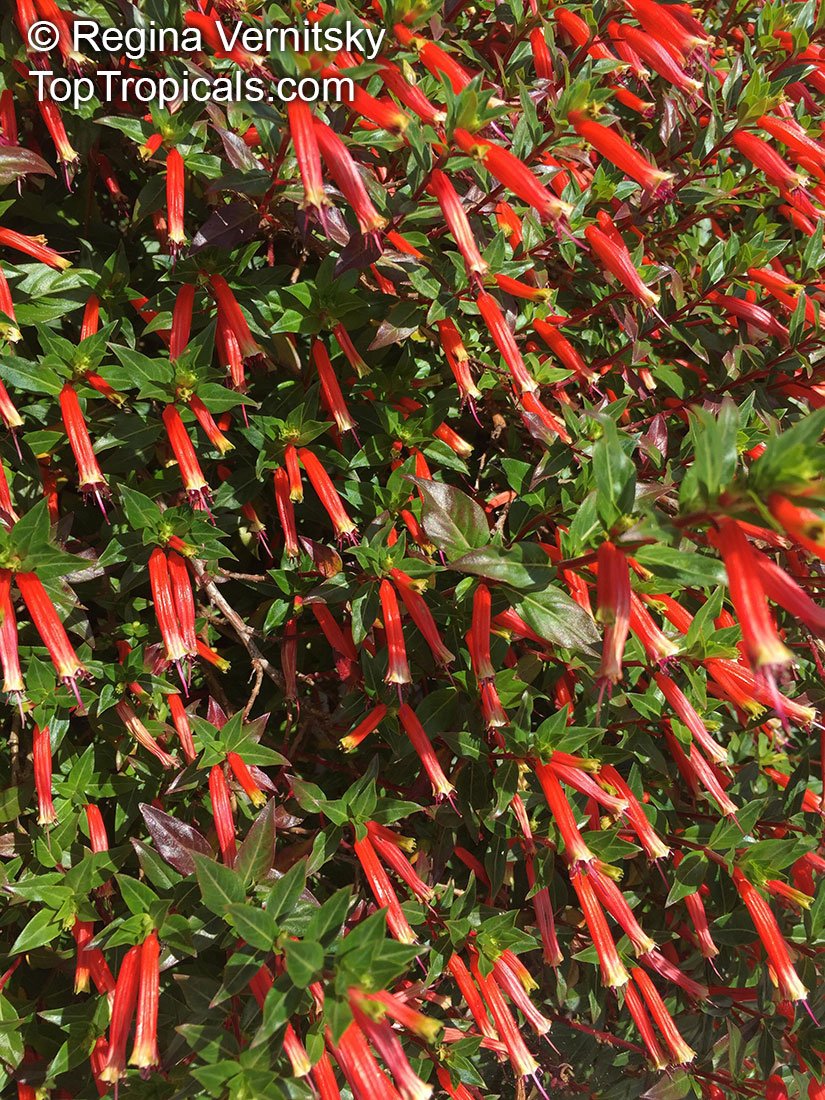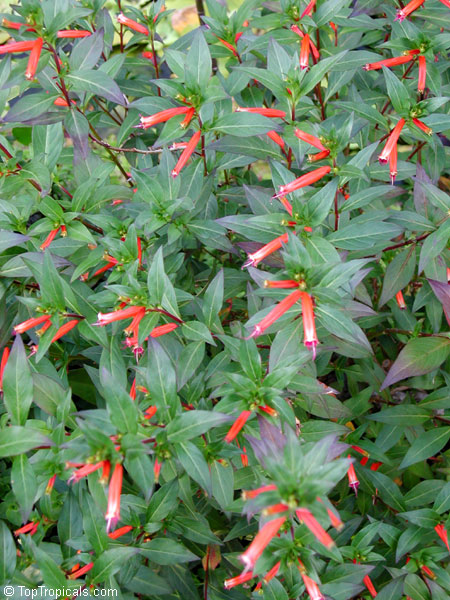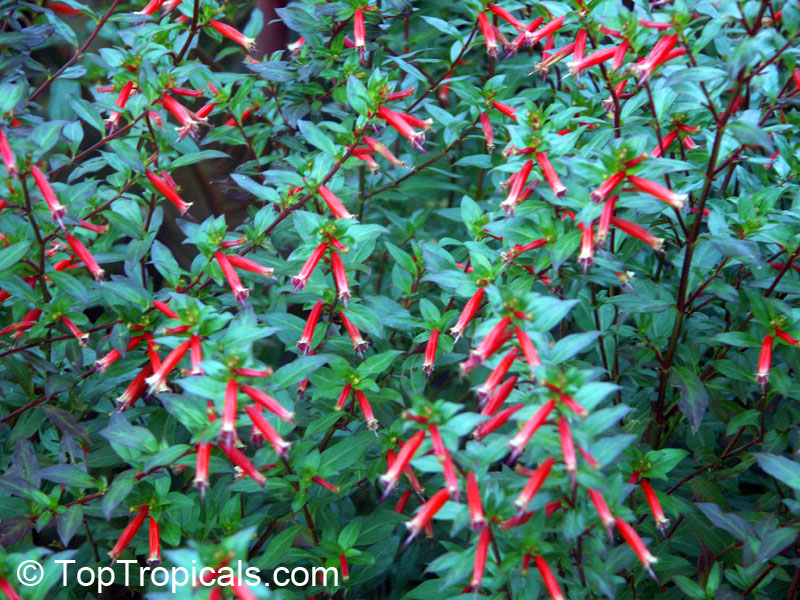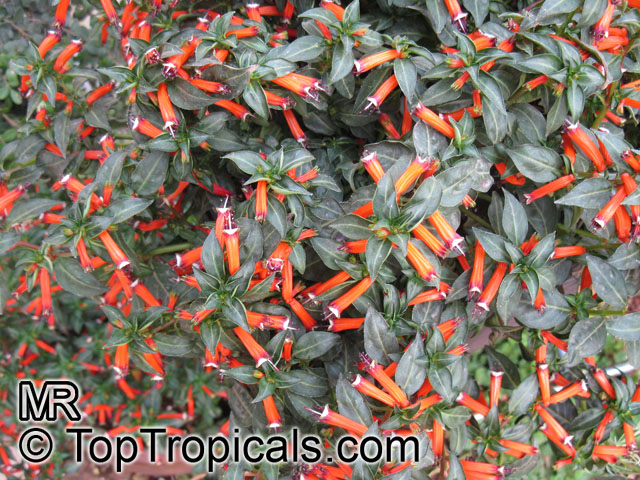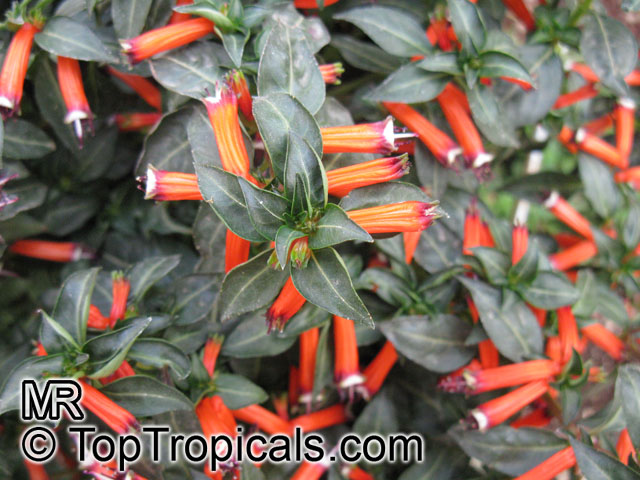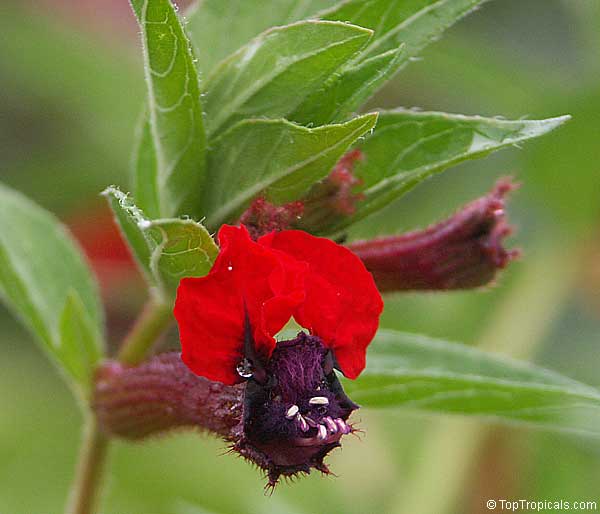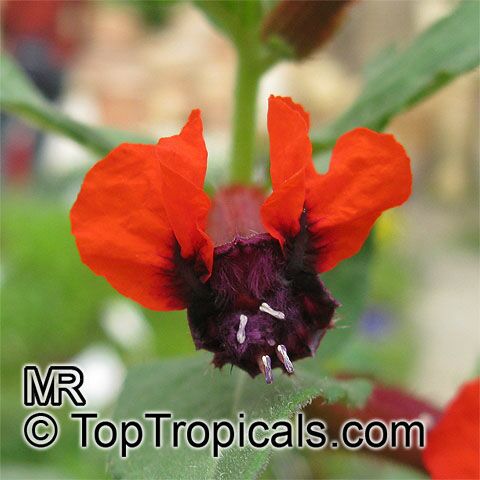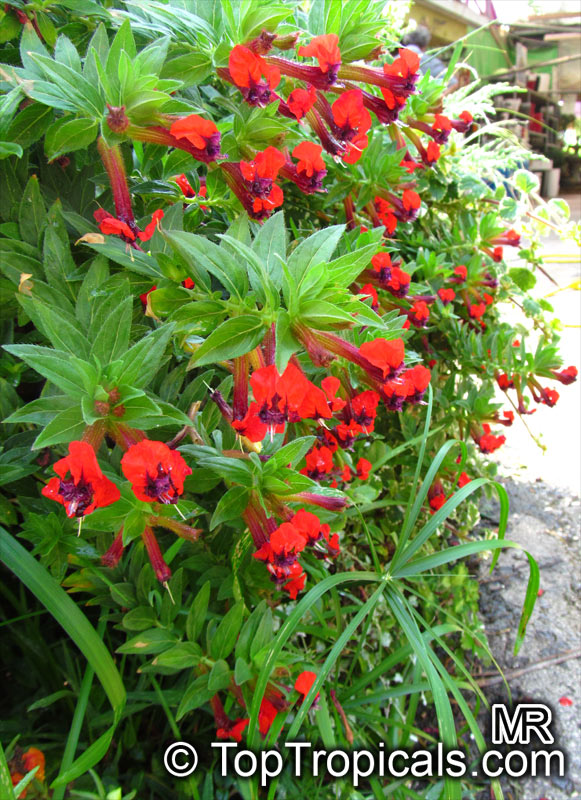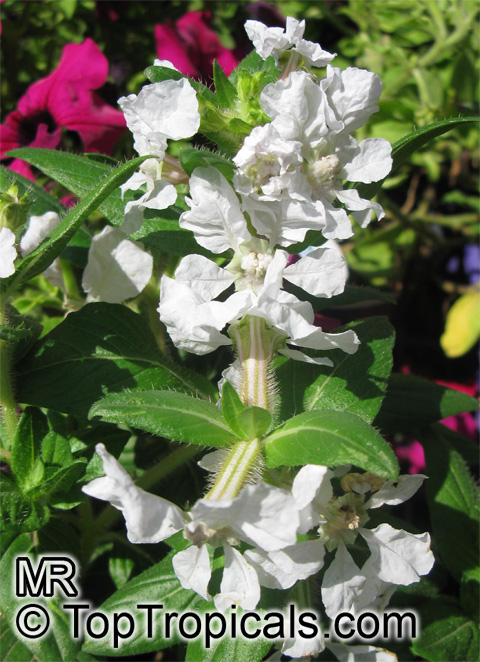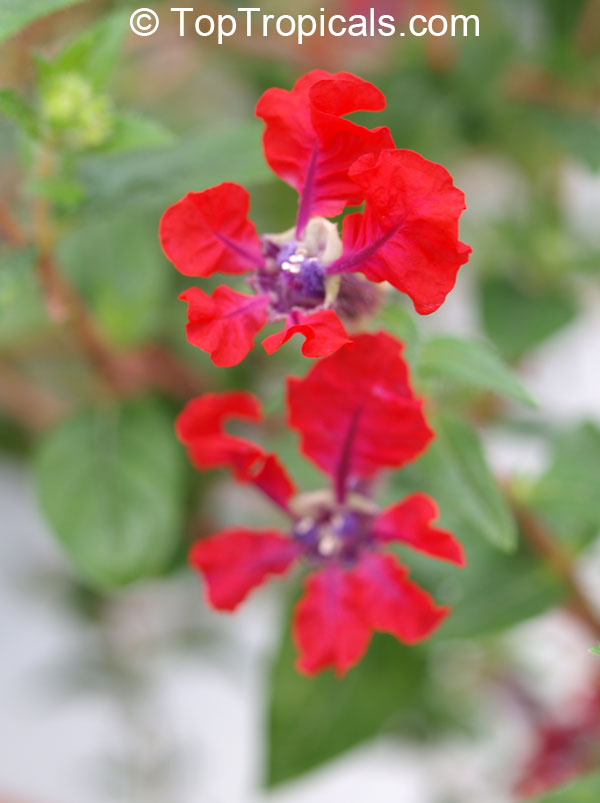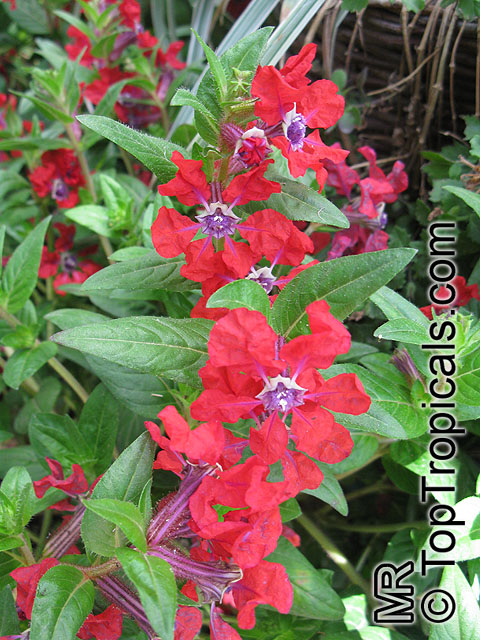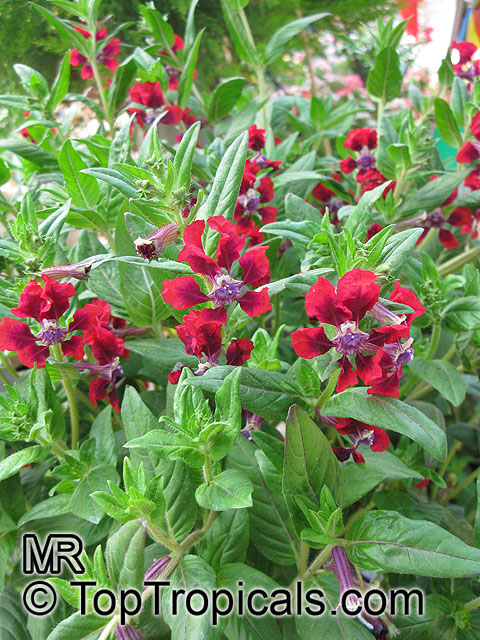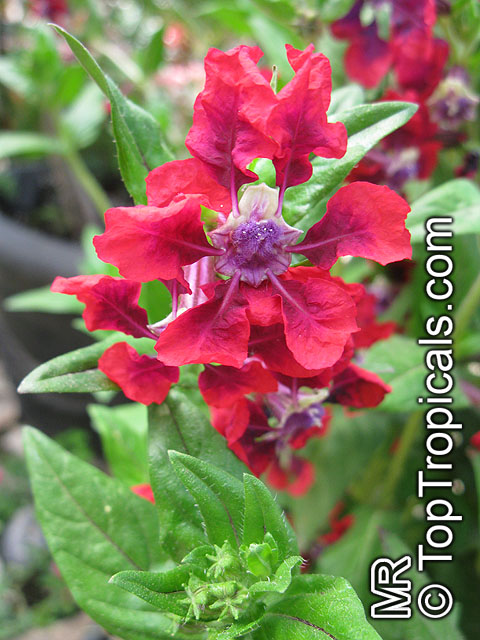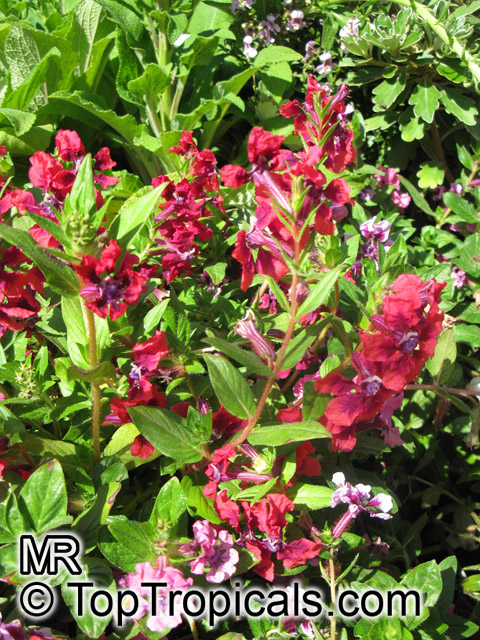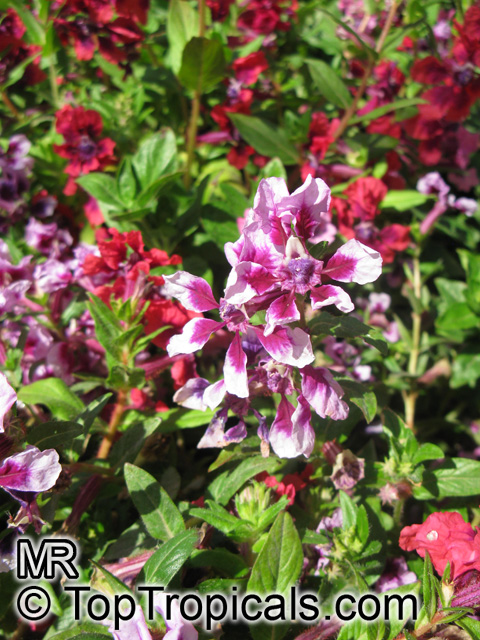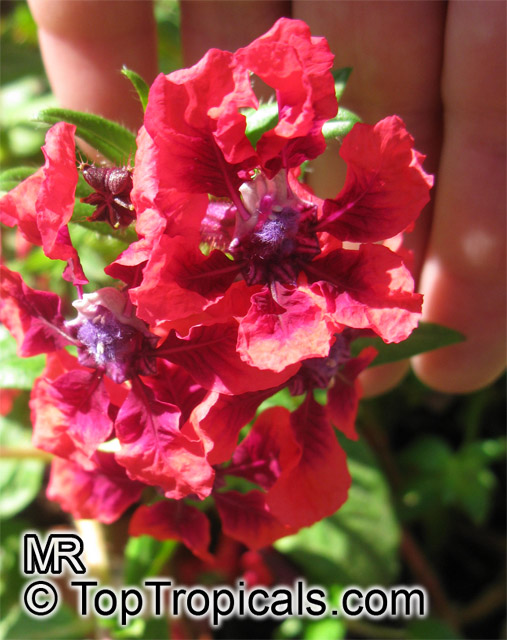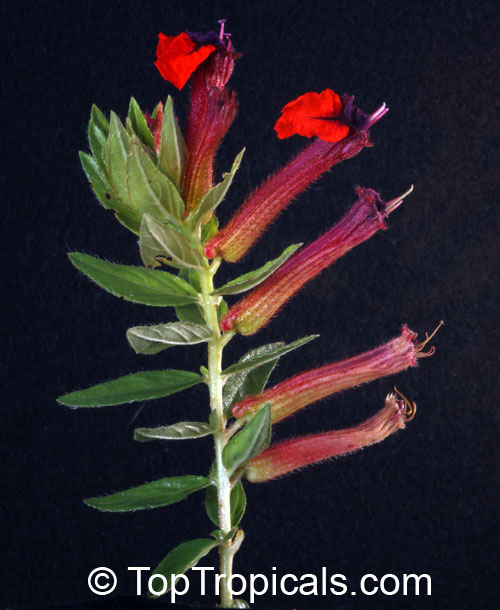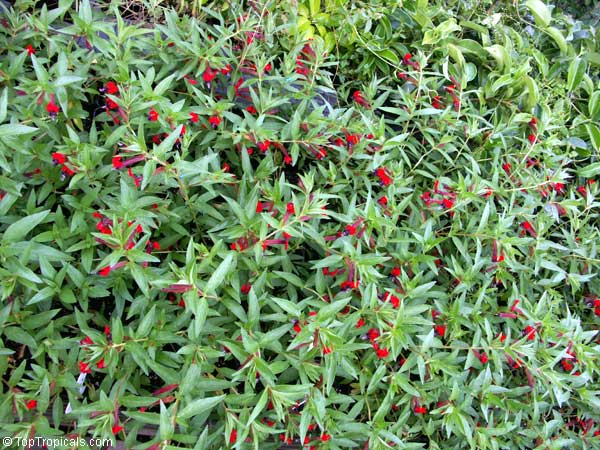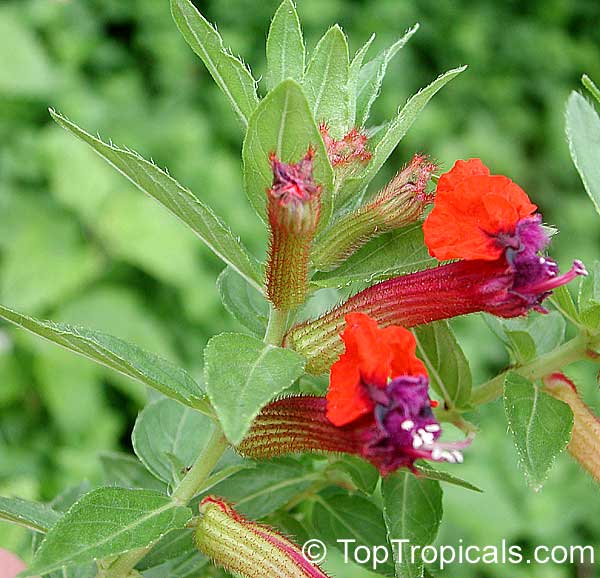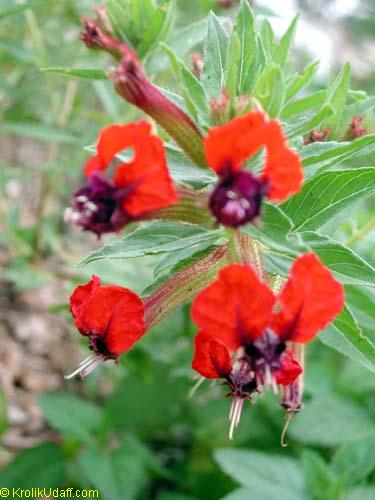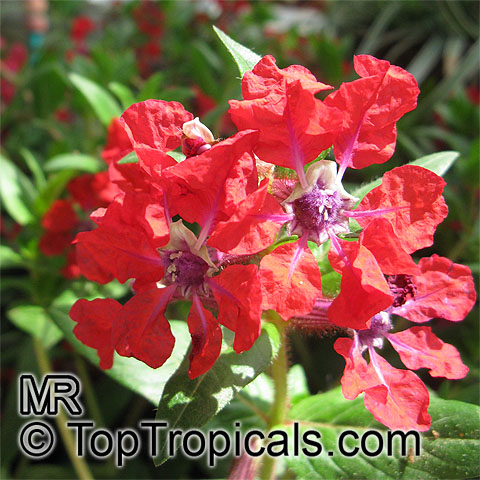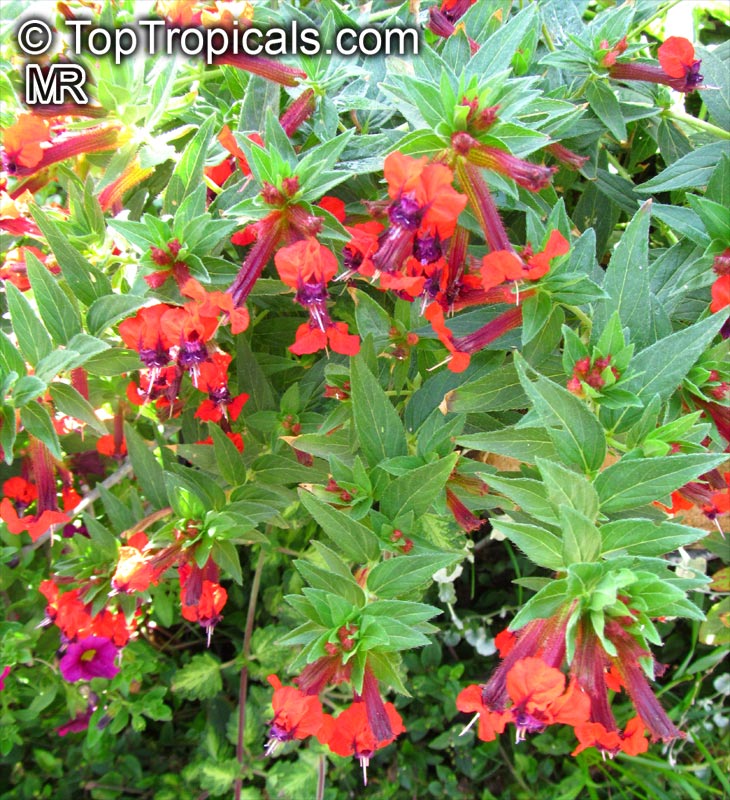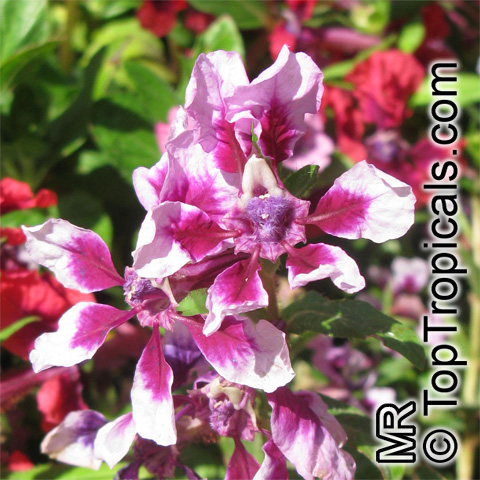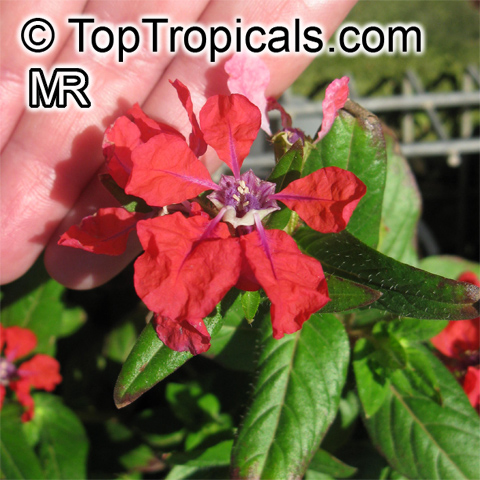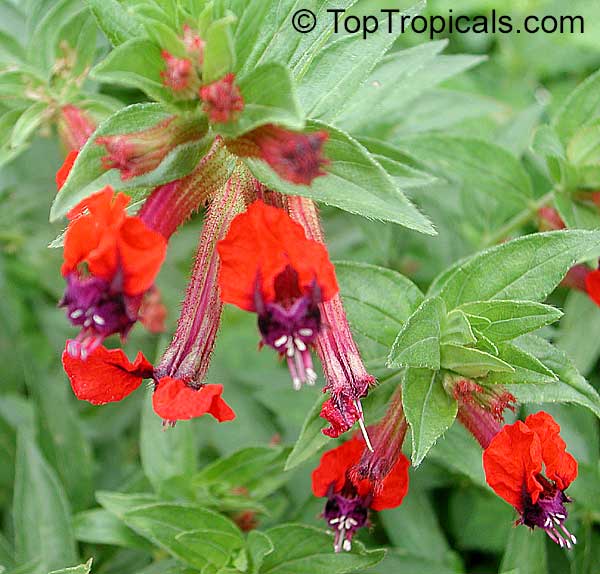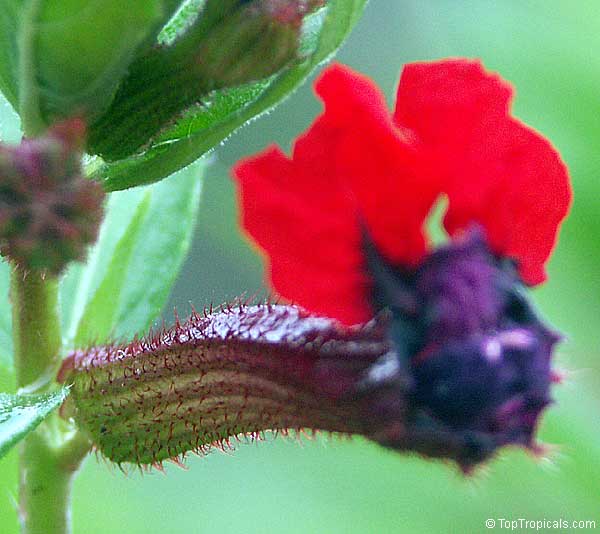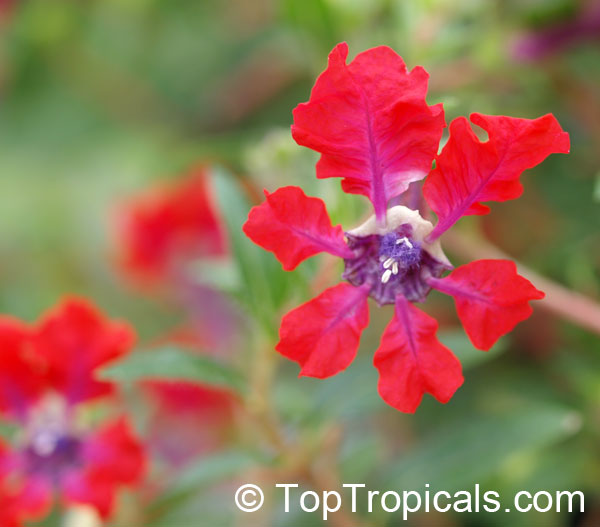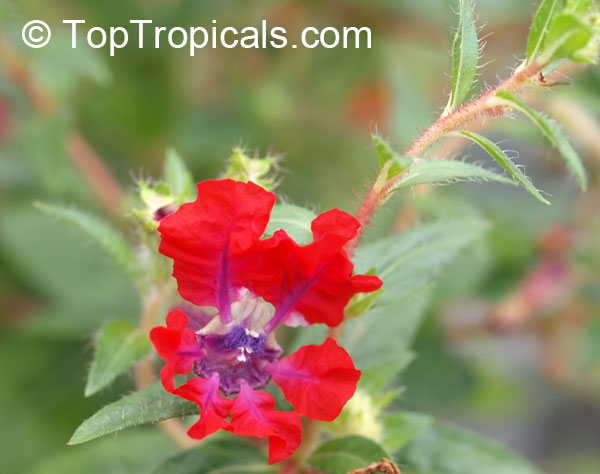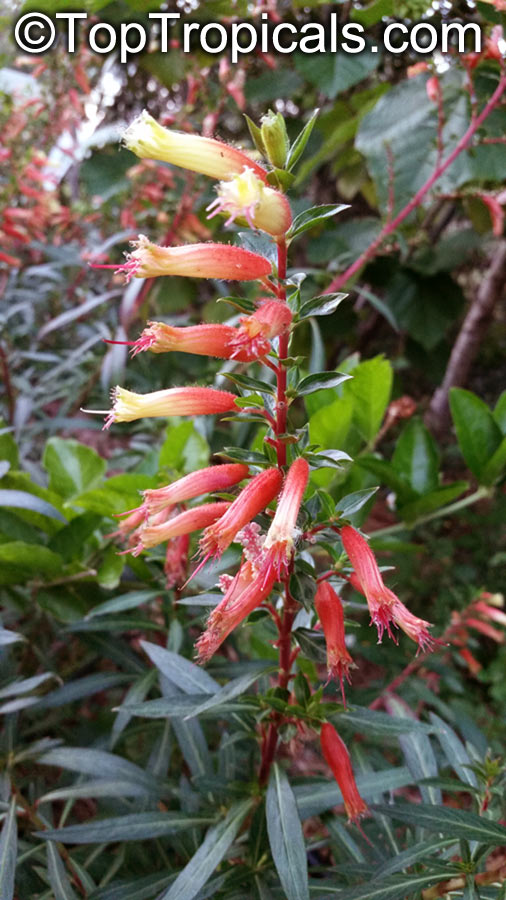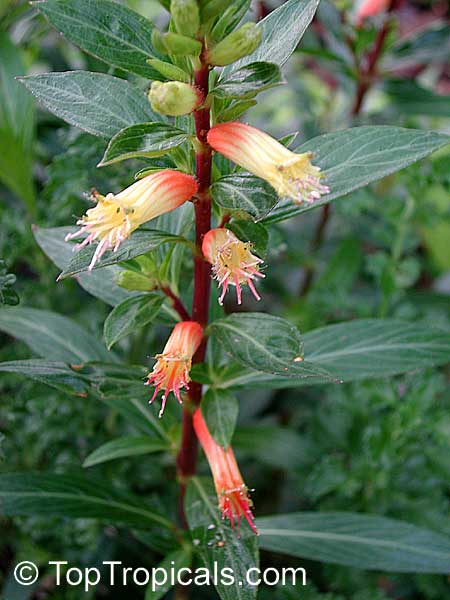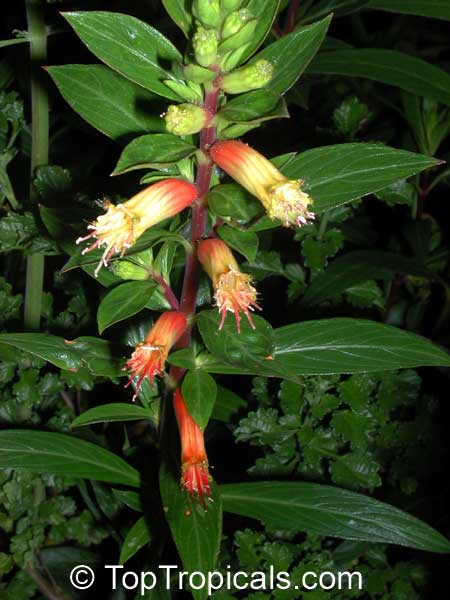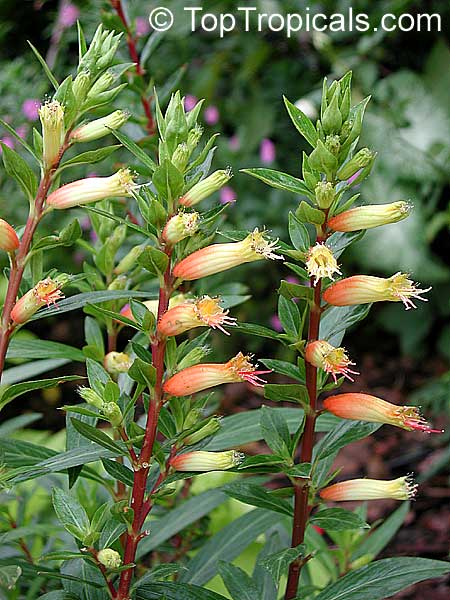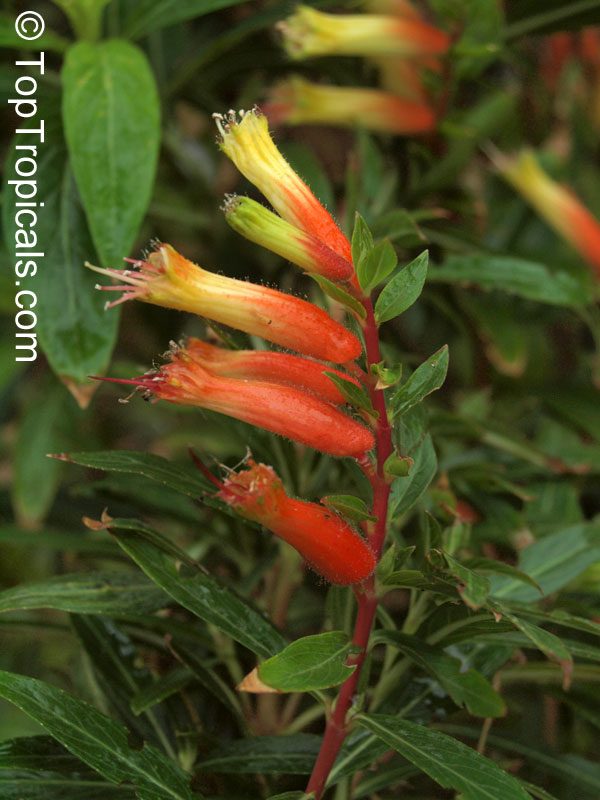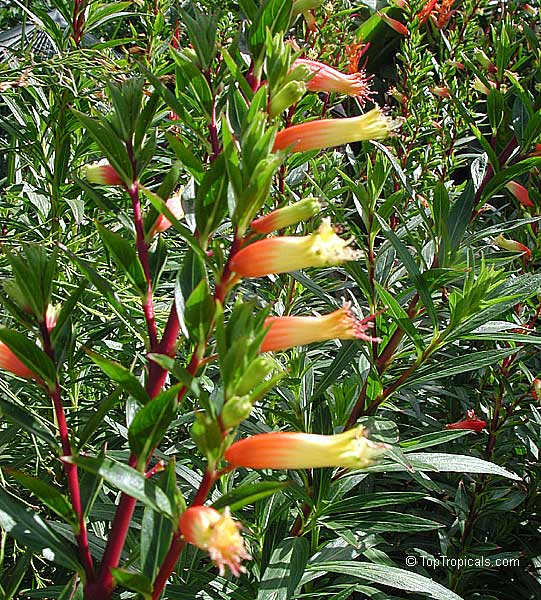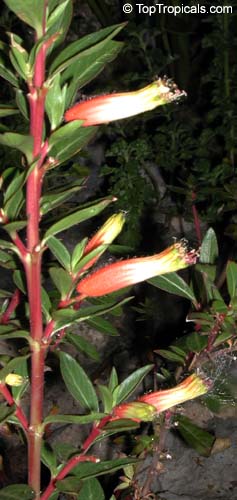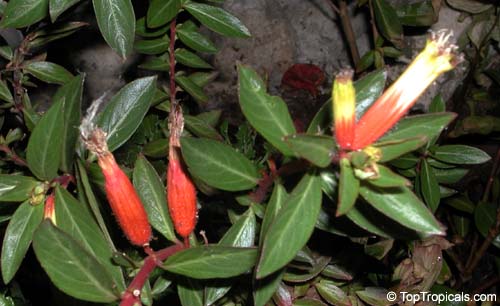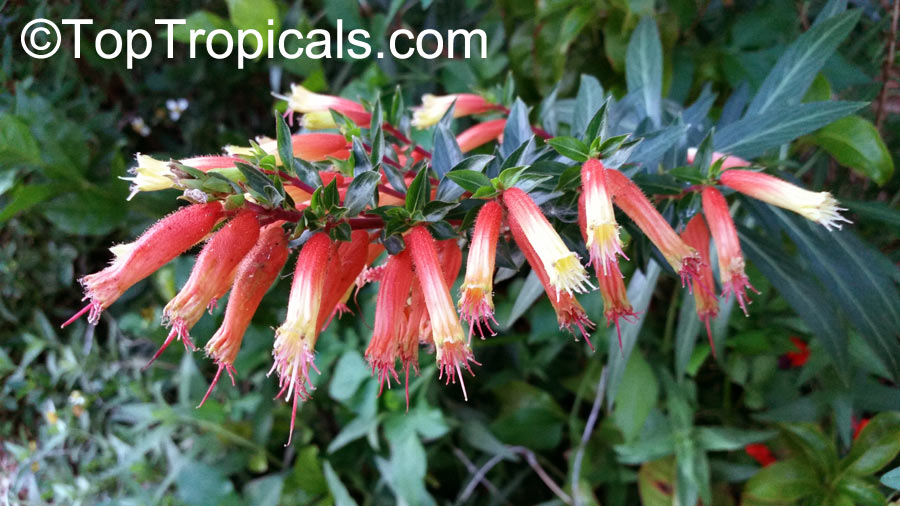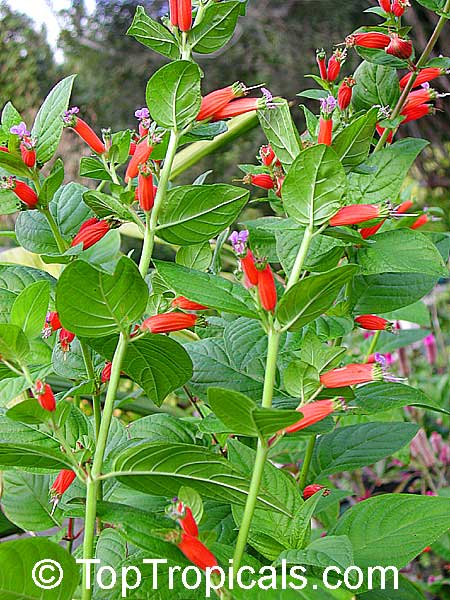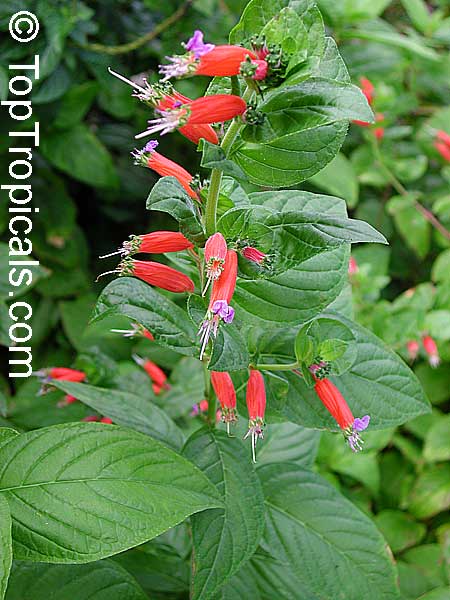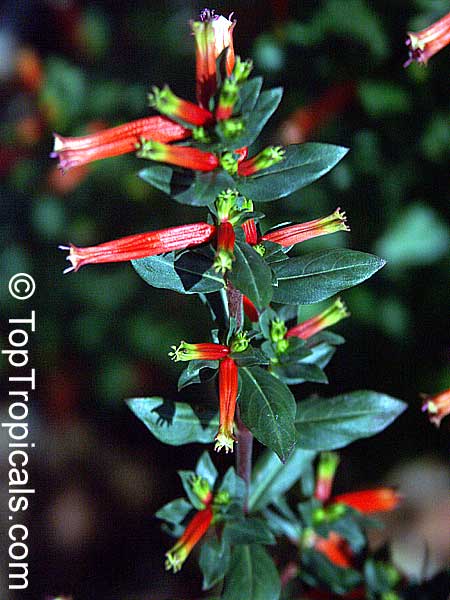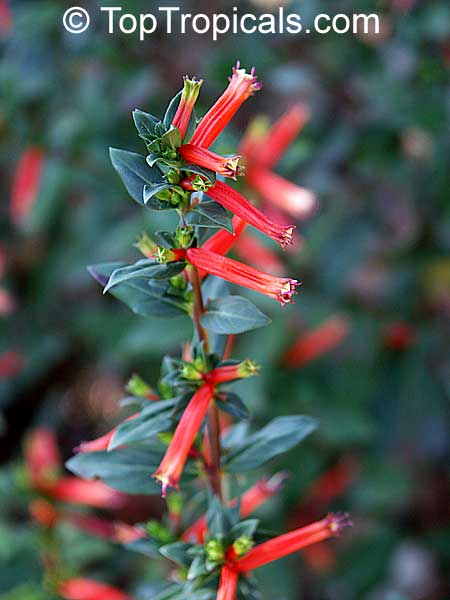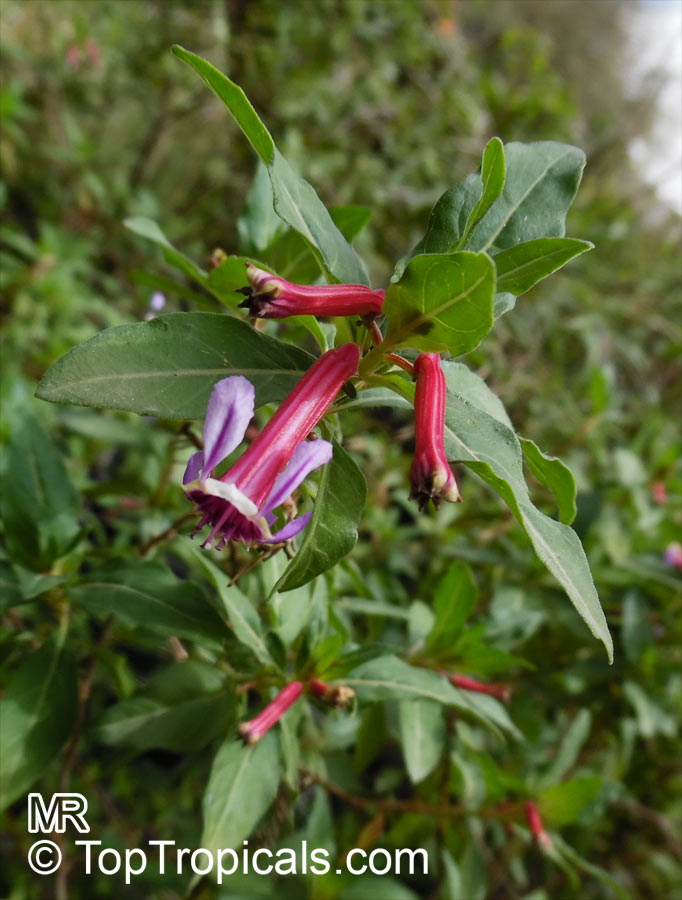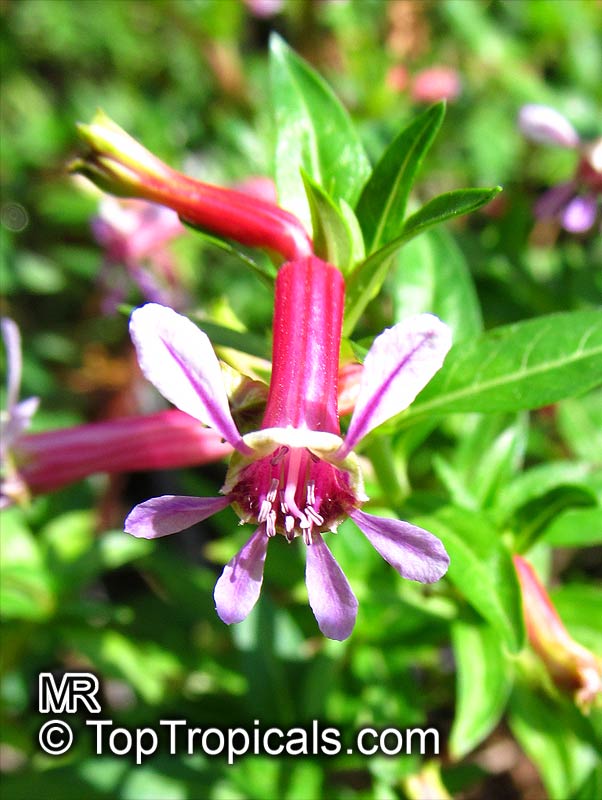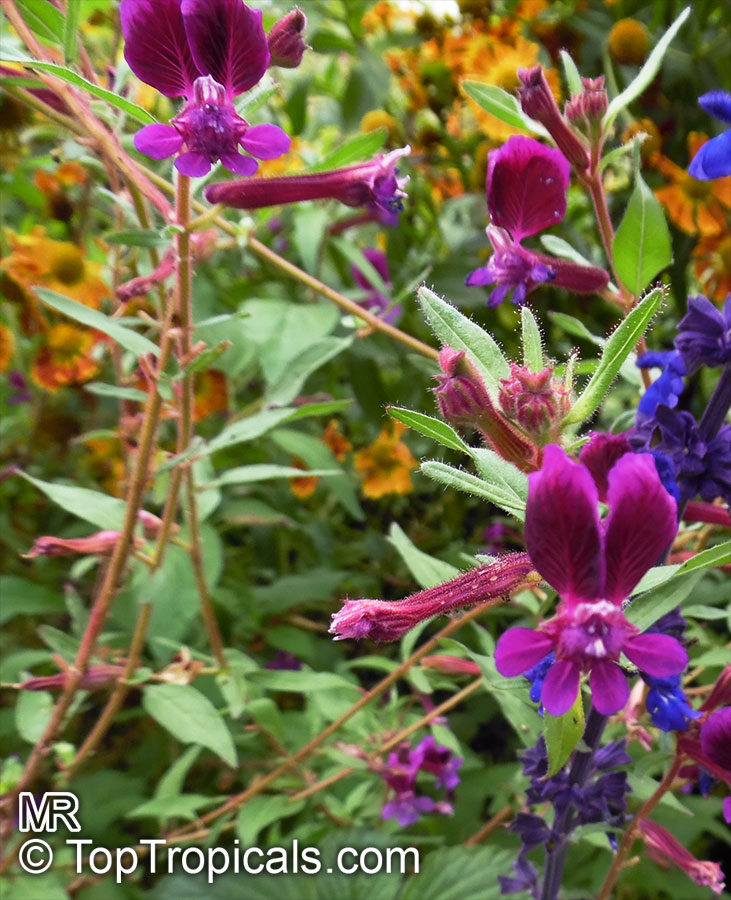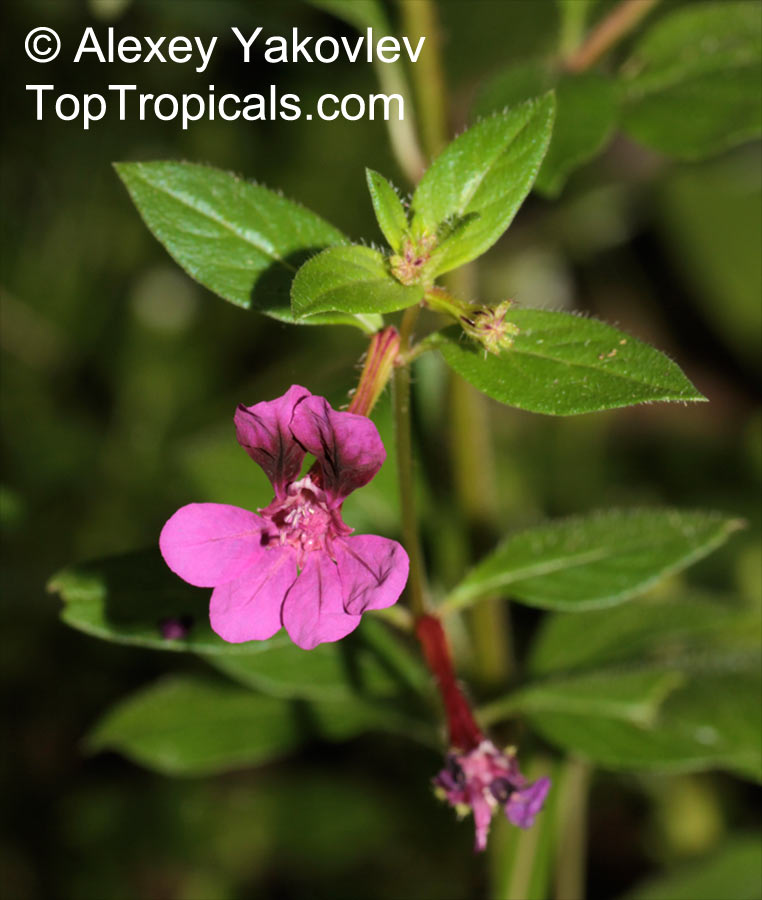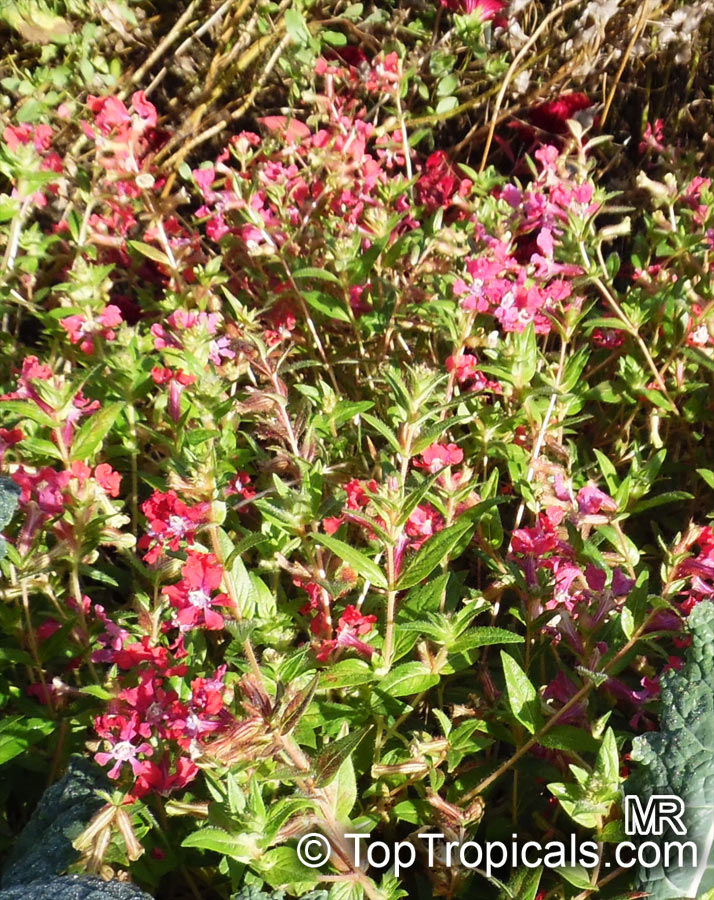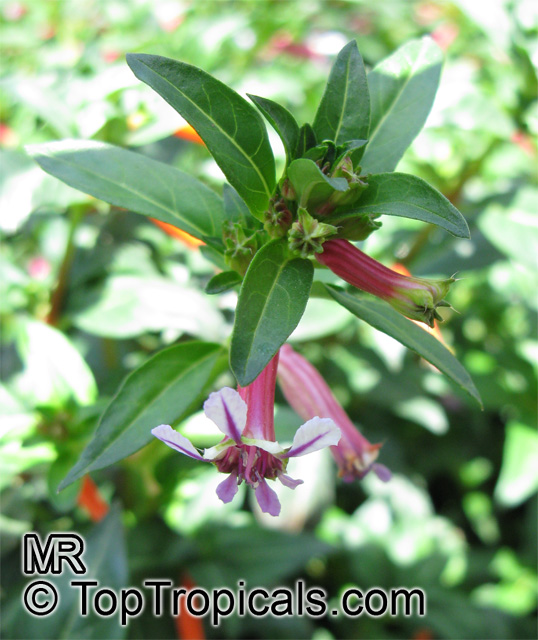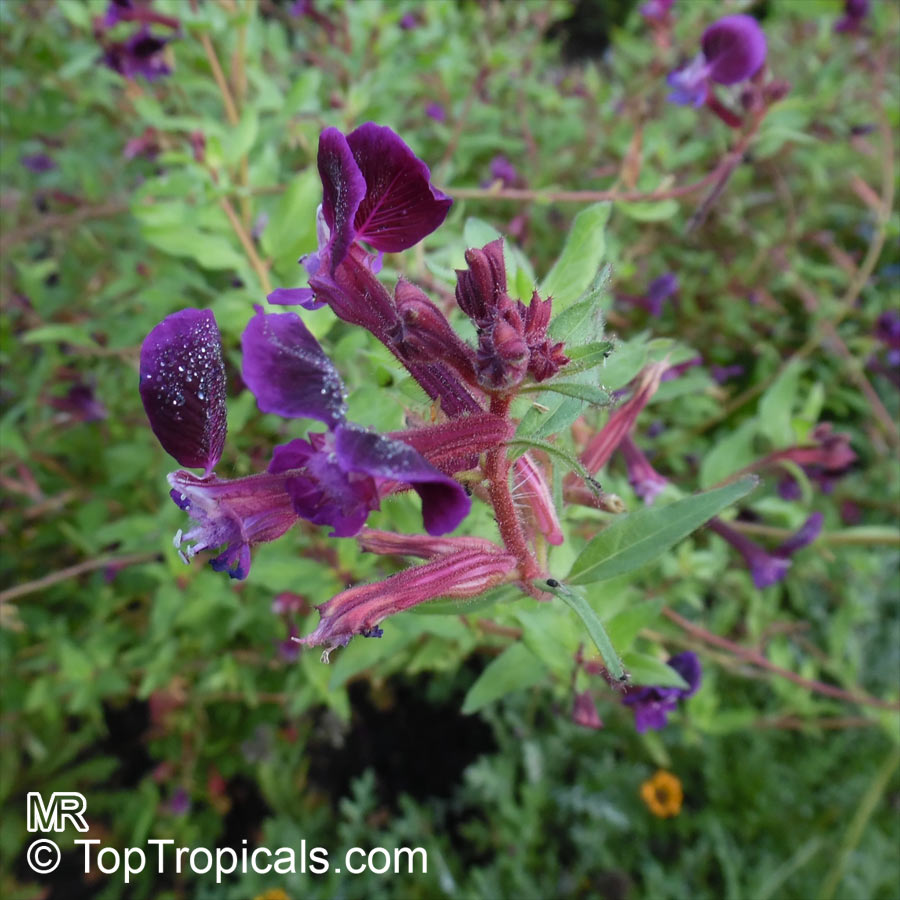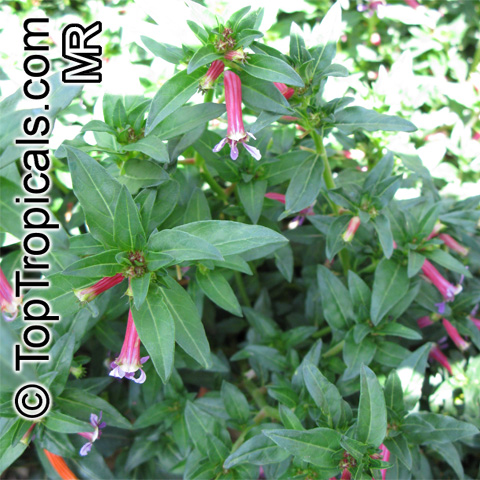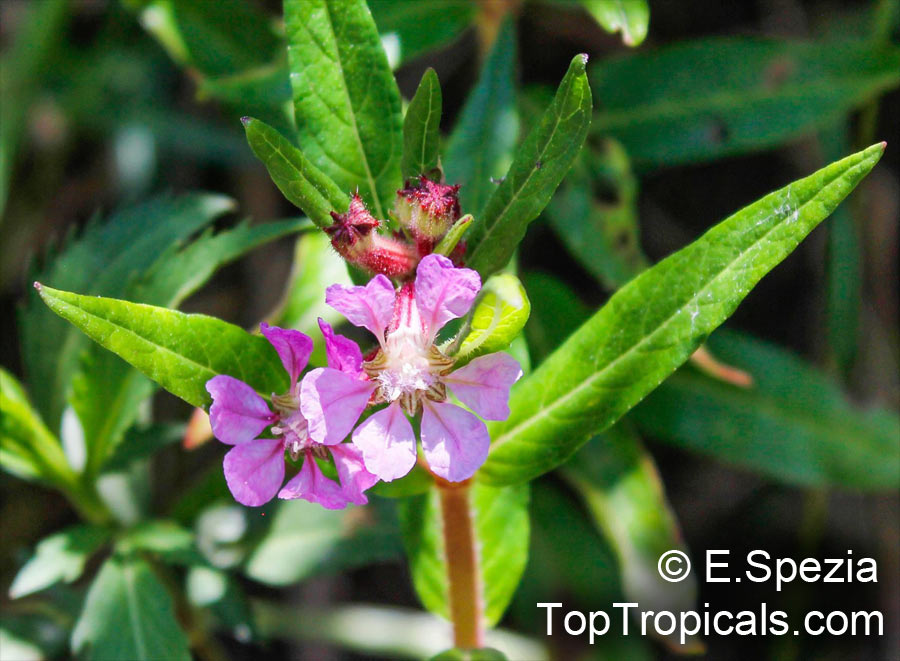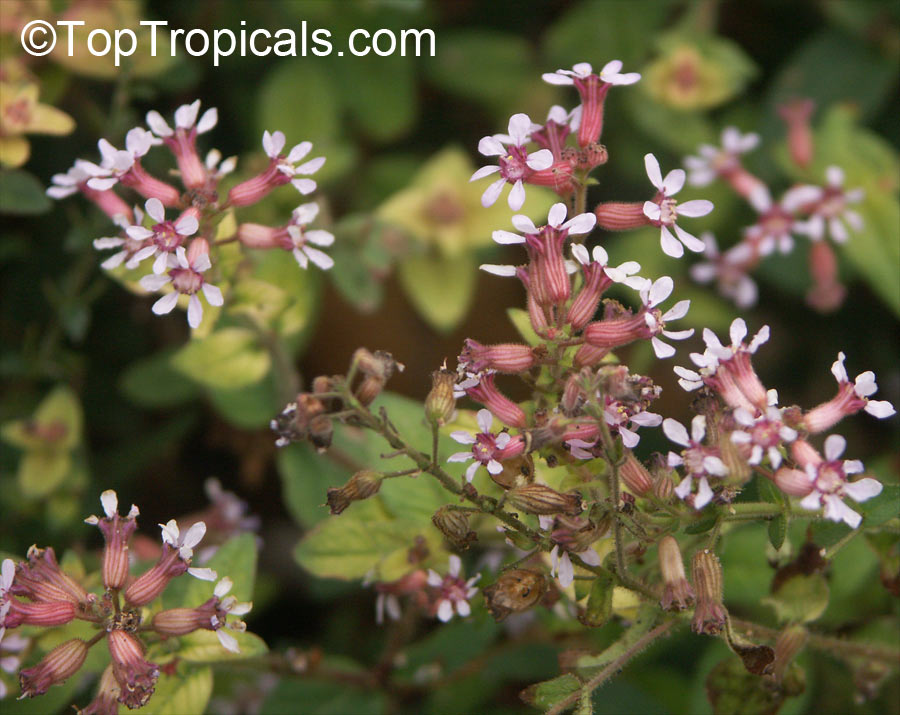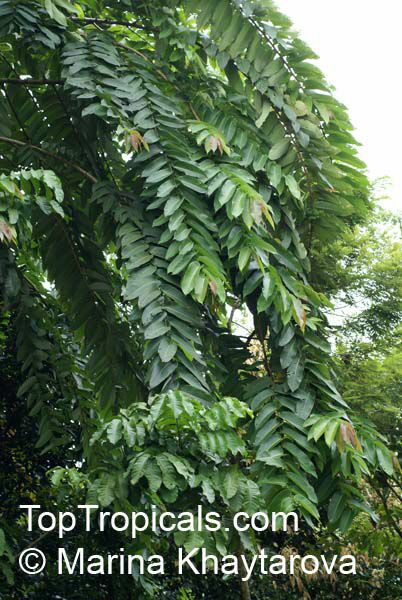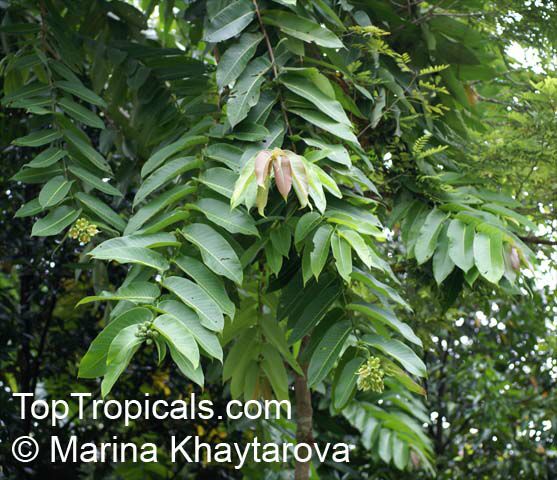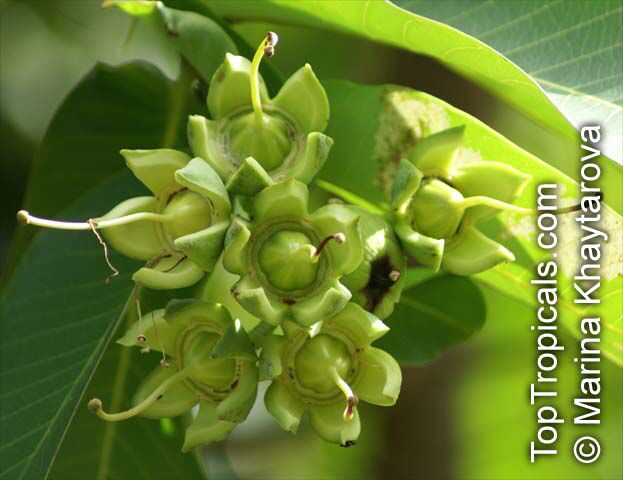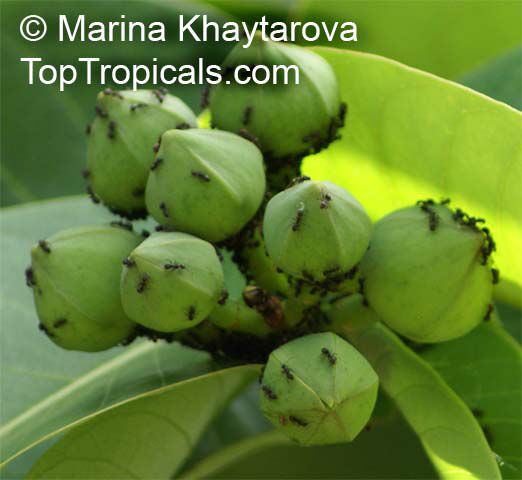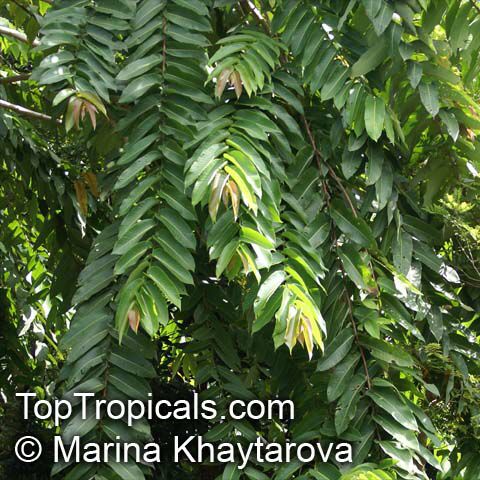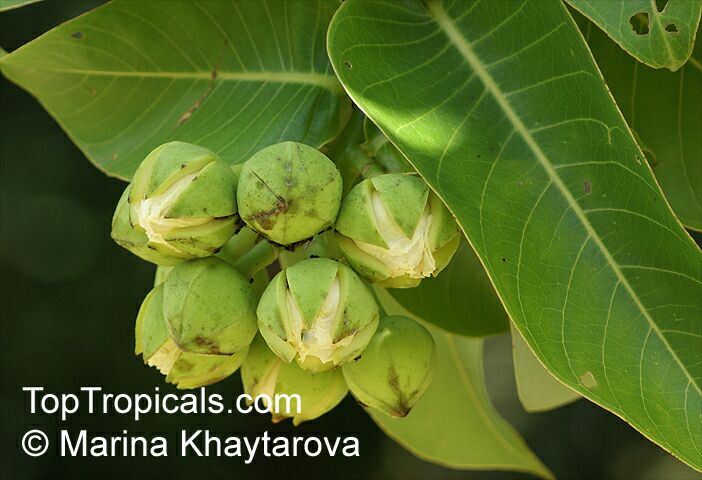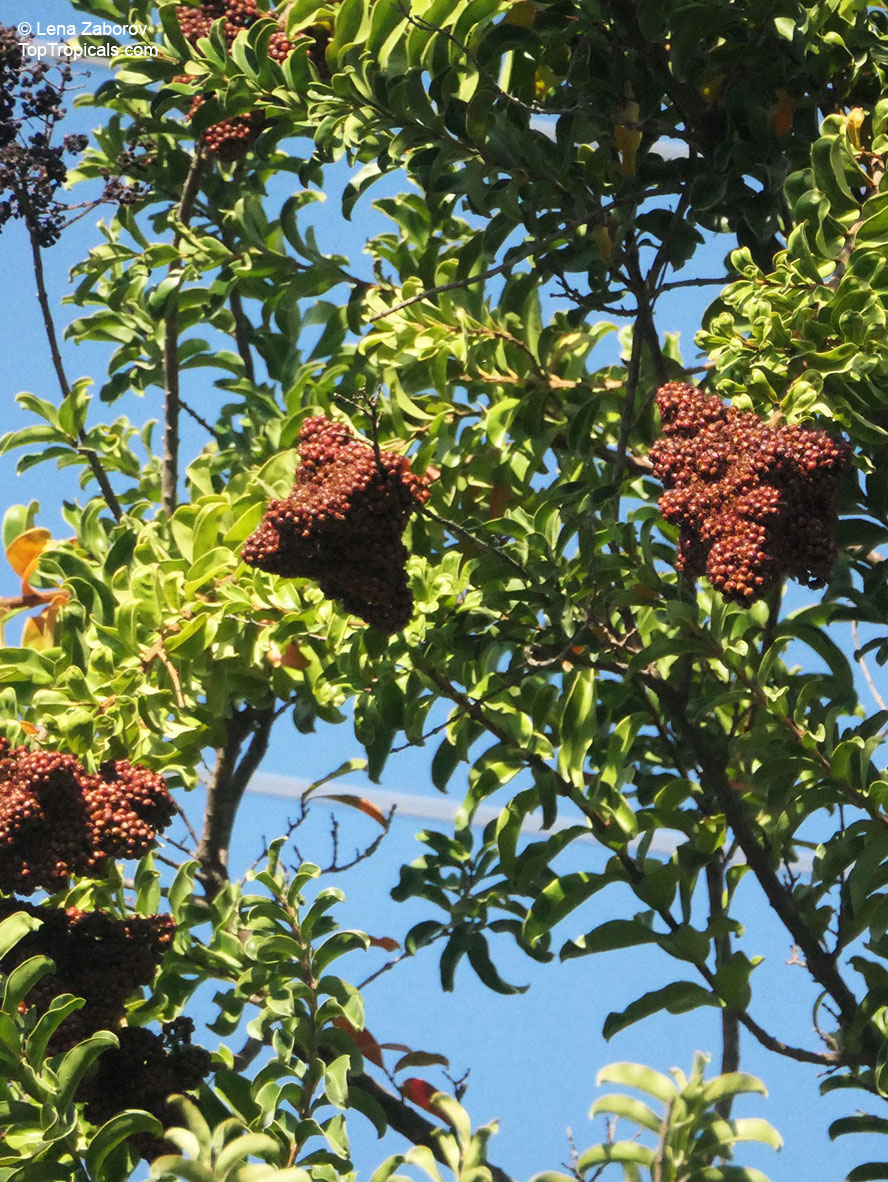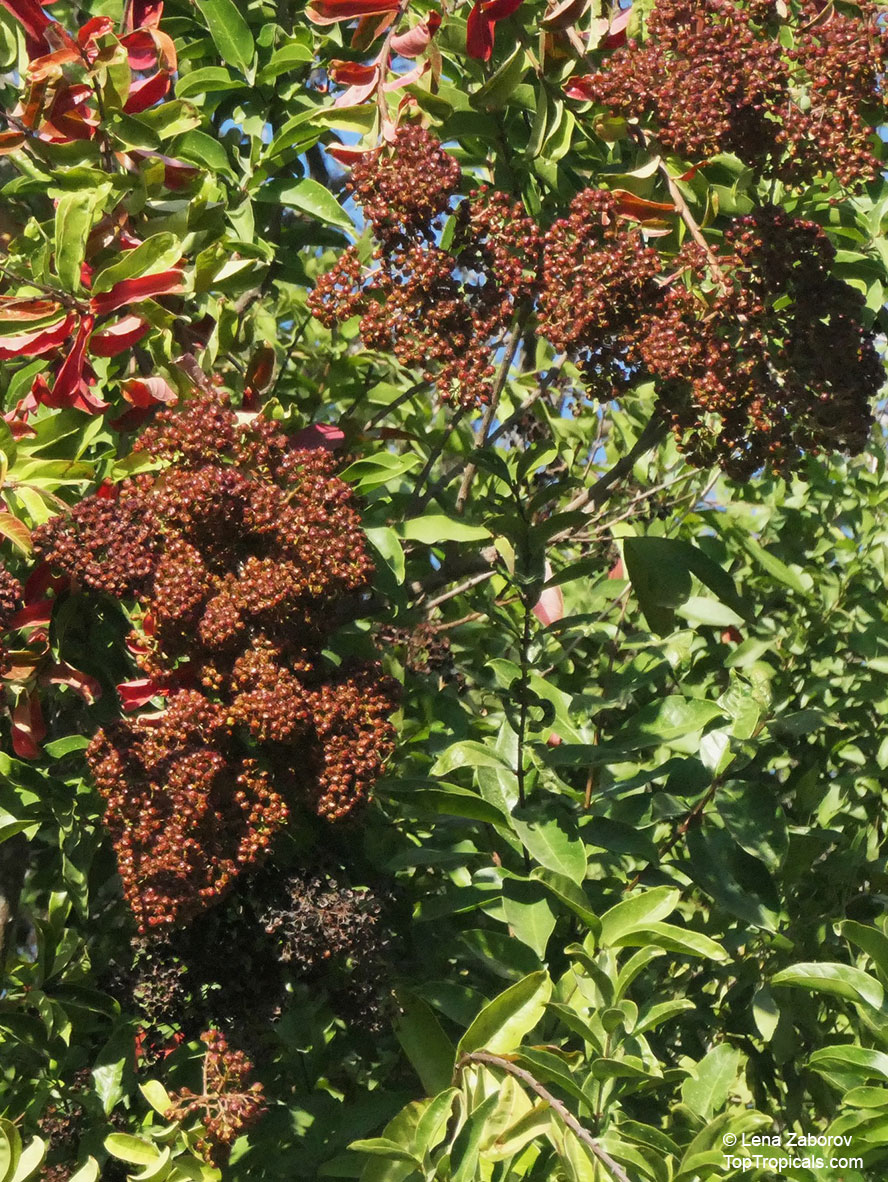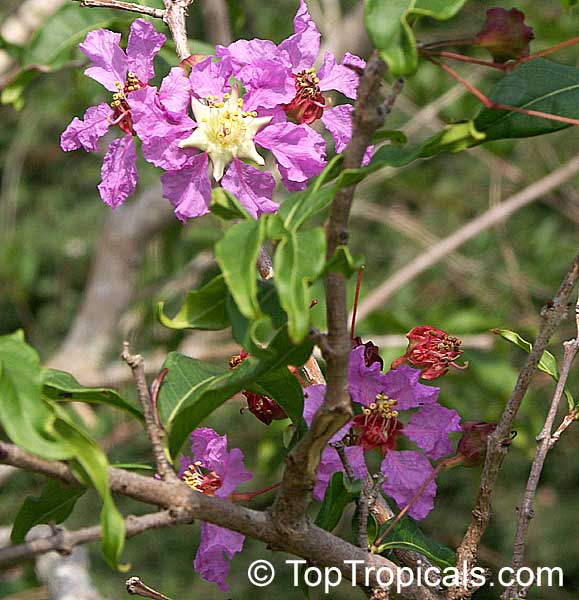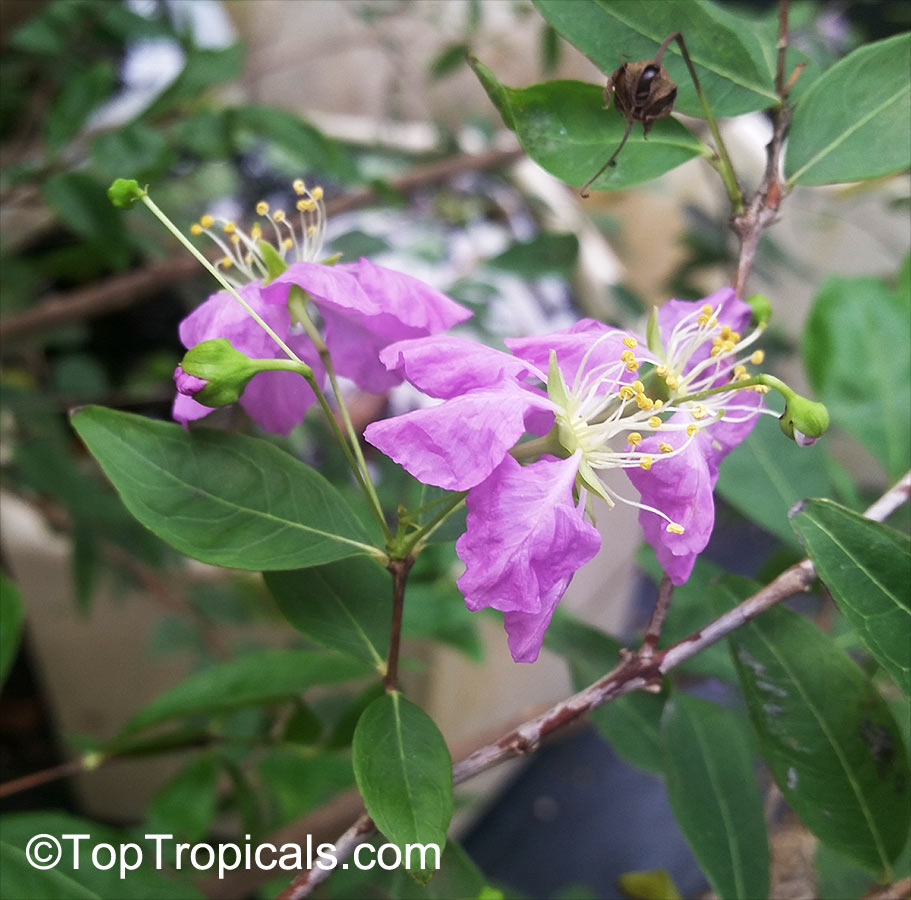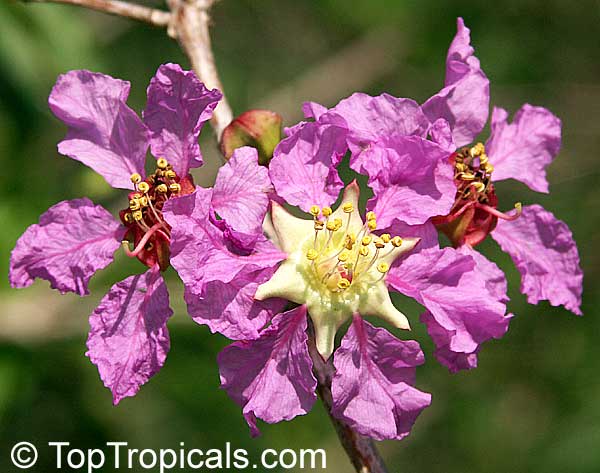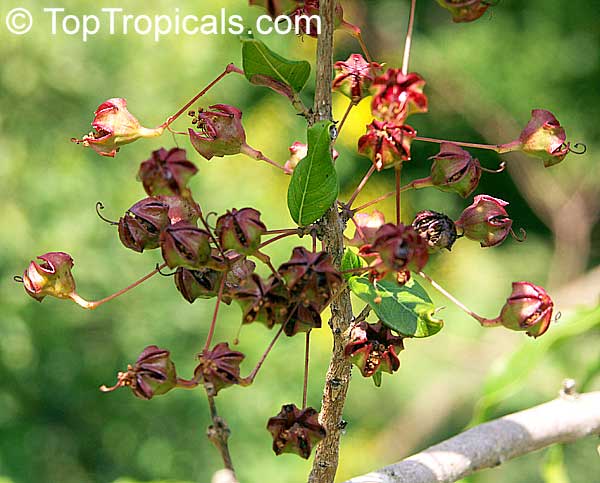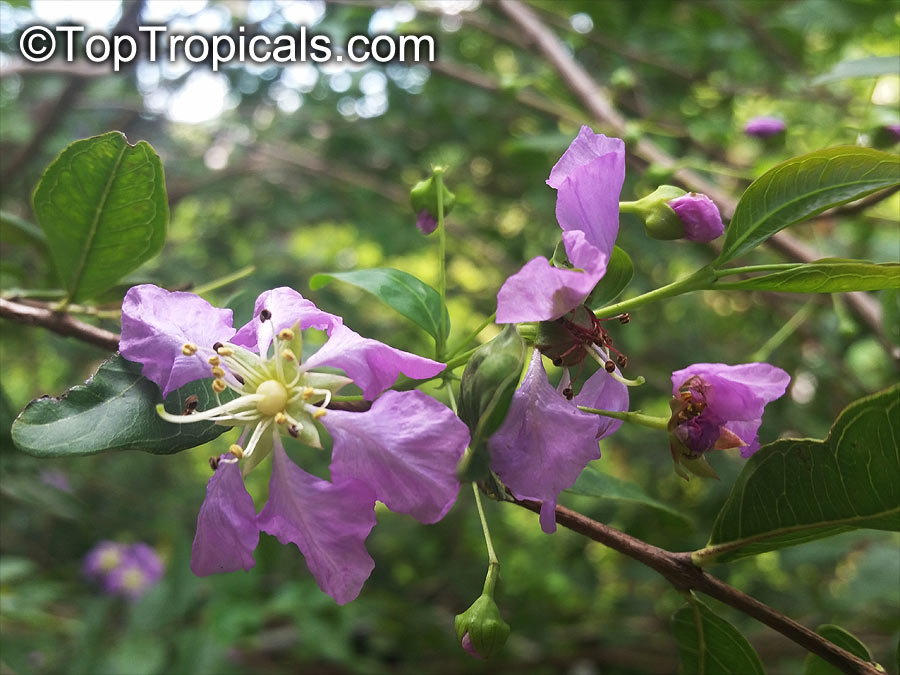Lythraceae - Botanical Family
| Number of plants found: 24 | Next | 
|
Go to page: | 1 | 2 | 3 |
Botanical name: Cuphea carthagenensis
Common names: Tarweed, Colombian Cuphea, Colombian Waxweed
Family: Lythraceae
Origin: Tropical America





Annual or perhaps short-lived perennial herbs, sometimes slightly woody at base.
Botanical name: Cuphea hyssopifolia
Common names: Mexican False Heather, False Heather, Hawaiian Heather, Elfin Herb
Family: Lythraceae
Origin: Mexico, Guatemala







In USDA Zones 9-11 Cuphea hyssopifolia (Mexican False Heather) can be grown outdoors as a low-growing, 2ft tall groundcover. It requires full sun for best growth, although it will tolerate some semi-shade. It requires regular water for the best bloom and foliage color. It has a long bloom time with the flowers being displayed in clusters on the end of the stems. The flowers are pink, white, or off-white, but are also available in shades of blue, lavender, and purple.
The Mexican False Heather is relatively easy to care for in a pot, even in cold regions. In USDA Zones below 9, it is best to keep the plant in a container and bring it indoors before the first frost. When bringing the container indoors, find a spot with plenty of bright light and some humidity. Water when the soil is dry to the touch, and fertilize every two weeks with a balanced liquid fertilizer. Prune back the plant in early spring to help promote new growth.
Botanical name: Cuphea ignea
Common names: Cigar Flower, Cigarette Plant, Firecracker Plant
Family: Lythraceae
Origin: Mexico, West Indies








Cigar Flower (Cuphea ignea) is a native of Mexico and West Indies and gets its common name from the shape and color of its small, orange and tubular flowers marked with a white tip and a touch of black, suggesting an ash tip from a cigar or cigarette. The leaves of the subshrub, which can grow up to 2 feet high, are small, elliptical and bright green. The species name ignea is Latin for fire, and the plant benefits from occasional trimming to keep it compact.
Cigar flower is a low-growing shrub-like groundcover that produces an array of brightly colored flowers. From spring to summer, vibrant shades of red, crimson and vinous bloom amid yellow and orange flowers in autumn. This hardy species is easy to care for and drought-tolerant, however it will thrive and be at its most beautiful when regularly watered, especially when planted in the ground. To prevent root stress, water it regularly, and when grown in a pot be sure to keep the soil moist but well-draining. Furthermore, Cigar Flower is particularly attractive to butterflies and hummingbirds which makes it a great accompaniment to any landscape.
Taking extra care of Cigar Flowers during the winter months is advised. Those grown in colder climates should be protected with an organic mulch covering the roots, such as in USDA Zone 9-11 or when kept in a container. When grown outdoors this drought-tolerant plant may also benefit from maritime exposure, making it ideal for those living near the sea. Furthermore, its antirheumatic properties make this species a great choice for its medicinal benefits throughout the year.
Botanical names: Cuphea llavea, Cuphea barbigera
Common names: Cigar Plant, Bat Head, Bat Face, St Peter Plant
Family: Lythraceae






Flowers resemble a burning sigar. Origin - Mexico, Jamaica. Beautiful everblooming small shrub 1-2" tall that can be used as a perfect groundcover. Great butterfly attractor. Very hight drought tolerance.
Botanical names: Cuphea melvilla, Cuphea micropetala
Common name: Candy Corn Plant
Family: Lythraceae
Origin: Brazil








A great butterfly and hummingbird attractor. Full sun to partial shade. Shear as needed to maintain desired size. The bush may reach 4' tall and 4' wide if left untrimmed. Blooms several times through the year in large bursts of orange and yellow flowers with greenish tips. Also known commonly as the candy corn plant due to the resemblance of the flower to the candy.
Botanical name: Cuphea sp.
Common name: Cigarette Plant
Family: Lythraceae
Hardiness: 20°F









The plant gets its common names from the flowers, which are small, orange and tubular.
Botanical name: Cuphea sp.
Common name: Cuphea
Cultivar: Twinkle Pink
Family: Lythraceae
Origin: Tropical America





Cuphea 'Twinkle Pink' has moderate to good drought tolerance and does well in full sun to light shade.
Botanical name: Duabanga grandiflora
Common name: Lampati
Family: Lythraceae
Subfamily: Sonneratioidea
Origin: SE Asia






Duabanga grandiflora (Lampati) is a plant native to Southeast Asia that is prized for its fast-growing, lush green foliage. This majestic plant can be grown in a variety of climates, ranging from USDA Zones 9-11, making it a great choice for home gardeners in many parts of the world. It is a large tree, typically growing to heights over 20 feet, though some varieties remain smaller, topping off at around 10-20 feet.
This tree needs full sun exposure and regular waterings. Its attractive white and off-white flowers bloom in the spring, offering a perfect backdrop for its lush foliage. This tree has become increasingly popular with gardeners since it can also attract beautiful butterflies and hummingbirds to their yards.
Growers that live in cold areas can easily keep their Duabanga grandiflora (Lampati) thriving in pots. When planting in a pot, the tree should be situated in a location with full sun exposure and watered regularly. The soil should be allowed to dry between waterings. Following these requirements will ensure that this beautiful tree continues to flourish for many years to come.
Botanical name: Galpinia transvaalica
Common names: Wild Pride of India, Knoppieblaar
Family: Lythraceae
Origin: South Africa







This tree is part of a small family of herbs, small trees and shrubs found in subtropical and tropical regions. Its attractive flower heads and colored spring foliage make it a popular ornamental tree. This tree is attractive as a hedge plant. It has a non-aggressive root system and can be planted close to walls and paved areas. The wild pride-of- India can be successfully planted in containers and makes excellent bonsai specimens.
Botanical name: Ginoria sp.
Common name: Ginoria
Family: Lythraceae
Origin: Caribbean








Large dense shrub with bright pinkish-purple flowers. Relatively drought tolerant. Can be pruned as a hedge or trained as a small specimen tree.
| Next |  |
Use link to repeat this search:
https://toptropicals.com/cgi-bin/garden_catalog/cat.cgi?search_op=and&keyword_op=and&language=e&family=Lythraceae&number=10
&no_change_lang=1&user=tt&sale=1&first=0

